Category: Infectious Diseases
-
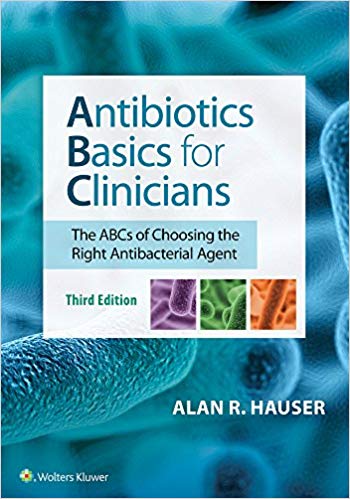
Antibiotic Basics for Clinicians (2019)
At some point in their educational career, medical students need to successfully navigate the transition from microbiology and pharmacology, —i.e., bugs and drugs—to infectious diseases, that is, diagnosing and managing infectious disease syndromes and distinguishing them from their noninfectious mimics. This transition is challenging for many for several reasons. The main one is, in my…
-
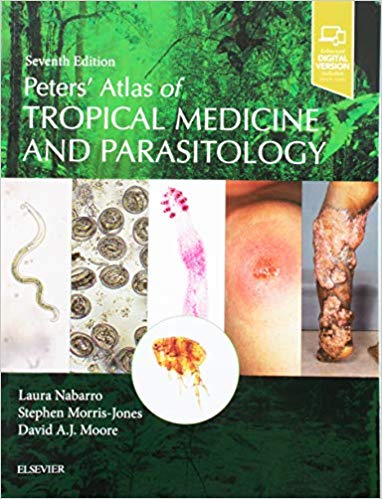
Peters’ Atlas of Tropical Medicine and Parasitology (2019)
Atlas of Tropical Medicine and Parasitology (2019) offers a bleak and sometimes depressing window into the state of health, or lack thereof, of underdeveloped countries, particularly those in Africa. The names of the diseases and symptoms are fearsome and sometimes curious: dengue, blackwater fever, rabies, leprosy, bubonic plague and more. The images are equally striking…
-
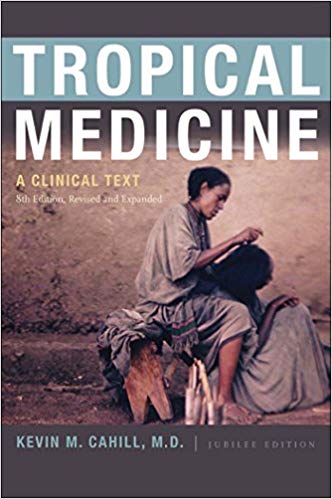
Tropical Medicine: A Clinical Text (2013)
Knowledge of clinical tropical medicine is essential for every modern physician. The diseases of warm climates are no longer restricted by geographical boundaries because the scope and speed of air travel … make us all part of a global community. Tropical Medicine (2013) Tropical Medicine: A Clinical Text (2013), first published in 1964, is comprised…
-
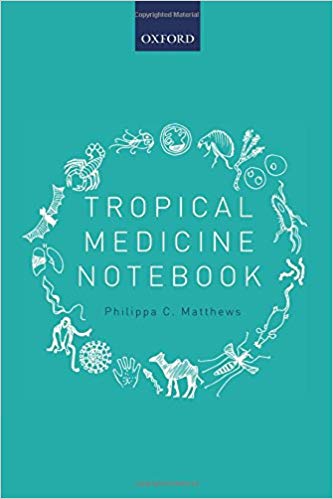
Tropical Medicine Notebook (2017)
Tropical Medicine Notebook (2017) is a smallish book (about 200 pages) crammed with usefully organized text, tables and drawings to help you learn and retain virtually all key ideas in medical microbiology. It’s an ideal handbook to have on your person as you try to learn or relearn the vast field of clinical microbiology in easy-to-digest bite-sized…
-
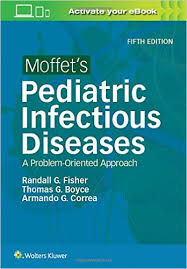
Moffet’s Pediatric Infectious Diseases, 5e (2017)
I write with reverence about what I believe to be one of the best medical books of all time: Moffet’s Pediatric Infectious Diseases, 5e (2017). The main problem with tackling infectious diseases from a diagnostic standpoint is that ID can be hard to classify clinically. The traditional approach is, basically, to ask the question Does the patient have…
-

How to Protect Yourself in the Event of an Ebola Outbreak
Here is a leading expert’s advice on how to protect yourself in the event of an Ebola outbreak: Do not travel to endemic areas. Avoid crowds: To the extent possible, stay at home. Do not go to cinemas or shows. Do not attend community meetings. Avoid healthcare facilities: emergencies excepted, avoid all hospitals, medical clinics, and doctors…
-
Meningitis: How to Answer “Best Next Step” Questions
If, on a standardized test, you are asked what’s the “best next step” in the management of a patient with suspected meningitis, prioritize thusly: Droplet precautions if Neisseria meningitidis is suspected (this comes first for public health reasons) Administer acyclovir if HSV meningitis is suspected (there’s no reason to delay this) Draw blood cultures (because…